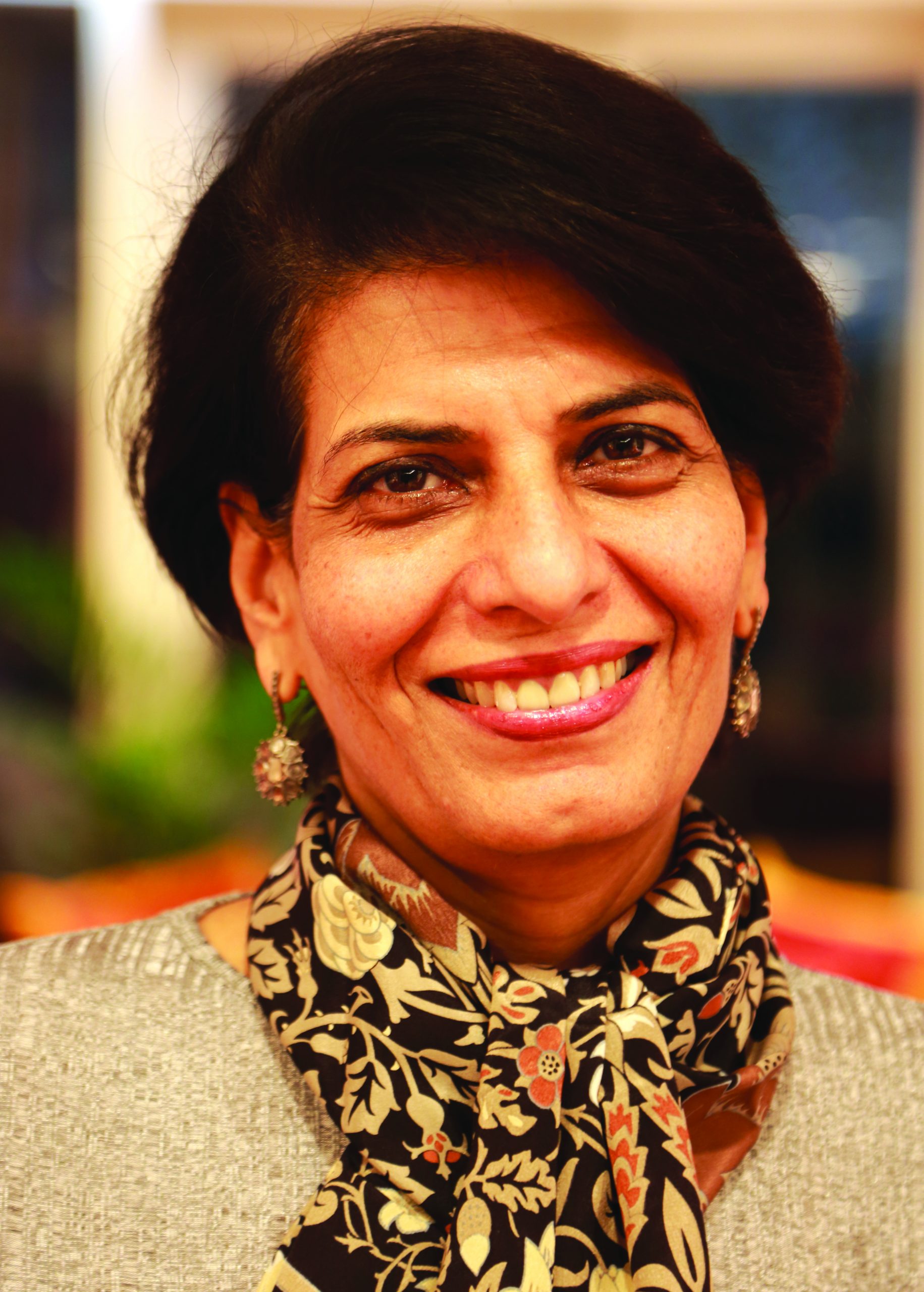There’s an emerging consensus that most packaged drinks are as harmful as junk food, with the potential to provoke a wide range of ailments including high blood pressure, cholesterol, juvenile diabetes, obesity, and heart disease – Nikhil Jayadevan, Mini P. & Cynthia John

India’s prolonged 60-weeks Covid-19 induced lockdown of schools and education institutions — the longest of any major country worldwide — which forced 260 million children to learn from home as best they could, has had the under-reported incidence of widespread eating disorders among children, including rising obesity in middle class India.
However, most discussions about children’s nutrition and health are focused on food rather than the fluids they have been consuming to their detriment. The focus of debates has been on junk food with health and nutrition experts unanimous about its devastating effects on children’s long-term physical health and well-being.
But latterly, health and nutrition professionals have brought many packaged fluids/drinks within the ambit of junk foods which are adversely affecting children’s health. There’s an emerging consensus that most packaged drinks are as harmful as junk food, with the potential to provoke a wide range of ailments including high blood pressure, cholesterol, juvenile diabetes, obesity, and heart disease.
During the pandemic, numerous beverage companies offering children a plethora of sports and energy drinks ranging from milkshakes to fruit juices, mushroomed countrywide with parents — unaware of the harm that some of their ingredients cause to vulnerable children — falling for their glitzy advertising. According to a study, Health Effects of Energy Drinks of Children, Adolescents and Young Adults published in the Journal of Paediatrics (2016), “some beverages” contain caffeine, ginseng and other stimulants that can cause “seizures, cardiac abnormalities, behavioural disorders, mood disorders and diabetes” in children. The study highlights that unregulated caffeine content in energy drinks “has been associated with serious consequences such as seizures, mania, stroke, and sudden death.”

Subhashini Satish
“Most parents are unaware about the dangers of children consuming packaged beverages, including widely advertised health and energy drinks. Most of them contain high levels of caffeine and sugar and cause serious ailments such as metabolic disorder, behavioural problems and heart palpitations. Over-consumption of some energy drinks can also result in renal diseases such as kidney stones. Parents mistakenly believe that allowing children to consume energy drinks, especially while they are engaged in sports and/or preparing for exams, will give them a much-needed energy boost. Parents should restrict consumption of packaged beverages,” says Subhashini Satish, nutritionist-dietitian, Colours, a wellness centre in Chennai.
In particular, during the pandemic-induced schools lockdown with children confined 24×7 to their homes with limited physical exercise, in middle-class homes, many of them have been bingeing on junk food, aerated beverages and packaged health drinks.
Sheila Sharma, a Bengaluru-based IT professional and mother of 12-year-old Rishabh, laments that lack of awareness about the dangers posed by aerated/health drinks resulted in her son being diagnosed with diabetes during the pandemic months. “During the lockdown, I was balancing long hours of work from home with household chores and duties. I didn’t realise how often my husband and son were ordering snacks and crates of aerated and other packaged beverages. Once I did, I limited ordering and intake of junk foods. But I never thought that consuming beverages would harm children. I was wrong. Within a year of the pandemic lockdown, Rishabh developed juvenile diabetes with his sugar levels touching 300 and the cause was over-consumption of aerated and other beverages,” says Sharma.
However, some nutritionists believe that health drinks including fruit juices may be beneficial for children who are fussy eaters and not getting proper nutrition. “Health drinks are not needed routinely. It is only a requirement for children who are active in sports, are involved in a lot of physical activities and need to boost their energy,” says Mumbai-based paediatrician Dr. Zinal Unadkat (https://www.thehealthsite.com/diseases-conditions/health-drinks-are-they-good-for-your-child-81883/)
Another nutritionist cautions against blanket condemnation of processed food and fruit drinks. “Health drinks are often made from food materials like milk, grains etc, and fortified with vitamins and minerals, though they also contain preservatives. I would not say they are essential in a child’s diet, but if your child is a fussy eater, then you could opt for them in moderation.”
Globally, the annual revenue of the processed beverage industry is estimated at US$1,544 billion (Rs.11 lakh crore) and is projected to grow by 3.10 percent to reach the market size of US$1,854 billion (Rs.13 lakh crore) by 2024. It is dominated by industry giants such as The Coca Cola Company, Nestle, Pepsico and Del Monte. These are socially responsible corporations which are conducting deep research into reducing harmful additives in their fruit juices and beverages, and should be given benefit of doubt.
Indeed, beyond the communities of health advisors and nutritionists there is a backlash against universal condemnation of the health, and especially fruit drinks, industry. “India is essentially still an agriculture economy and the world’s largest producer of horticulture produce, i.e, fruit and vegetables. Because of poor Central planning and government policies, 40 percent of the annual horticulture produce is wasted and despoiled. Therefore, a thriving food and fruits processing industry is necessary in the national interest. In the circumstances universal condemnation of processed food and fruit juices is unwarranted. Globally huge sums are being invested in research to reduce harmful additives in processed fruit juices. Currently, there is too much hysteria about the allegedly harmful effects of processed health drinks. Rather than rule them out completely parents should ensure children don’t over indulge. Absorbed in moderate quantity, carefully selected health and fruit drinks can be beneficial for children, especially for the vast majority of under-nourished children in rural India,” says an irate Bengaluru-based agri-economist, who prefers to remain anonymous. In the pages following, we present valuable information and expert advice from nutrition experts and highly qualified paediatricians about ways and means to limit and regulate the consumption of popular beverages by children.
Energy Drinks
Most mass consumption energy drinks include caffeine, ginseng, taurine, etc to increase energy levels. According to health experts and nutritionists, unmoderated consumption could induce insomnia, heart palpitations, attention deficit hyperactivity disorder (ADHD), irritability, hysteria, heart stroke, and seizures in children in early or adult life.
Children with comorbidities such as heart disease or asthma could suffer fatal cardiac arrest because of sustained consumption of energy drinks.

Dr. Yogesh Kumar Gupta
“The majority of packaged energy drinks are loaded with sugar and caffeine to keep consumers alert and energetic. High sugar calories lead to obesity while excess caffeine causes disturbed sleep and behaviour. They also contain artificial flavours and colouring agents which can trigger allergies,” warns Dr. Yogesh Kumar Gupta, head of the paediatric intensive care unit of Fortis Hospitals, Bannerghatta Road, Bengaluru.
Sports Drinks
Sports drinks differ from energy juices, says Ishi Khosla, clinical nutritionist, Centre for Dietary Counseling, Delhi. “They either contain excess sugar or artificial sweeteners such as aspartame or saccharine, both of which are harmful. In addition, they contain artificial colouring, flavouring and preservatives. All this can lead to weight gain and metabolic disorders such as high blood pressure, blood sugar, excess body fat and abnormal cholesterol,” says Khosla.

Ishi Khosla
Milk
Milk is hyped as the most important fluid critical for a child’s orderly development. Unfortunately, packaged milk is not as pure as it looks. Heavy doses of hormones injected into bovines (cows, buffalos) find their way into processed milk, causing hormonal imbalance, early puberty and other health problems in children.
“It is becoming commonplace in the dairy industry to inject cattle with hormones. Barring a few animal hormones, most of them adversely affect children’s health. They often prompt early onset of puberty in girl children, excess weight gain, and even cancer. The best option is to ensure that you have a trusted dairy products supplier with products certified for quality. Another option is organic milk,” says Dr. Yogesh Kumar Gupta (quoted earlier).
Nevertheless, Dr. Gupta stresses that despite ubiquitous adulteration of milk, it’s important to note that it is a well-established source of protein, calcium, potassium, phosphorus, vitamins and minerals. Therefore, caveat emptor! Alternatives to milk include curd, lassi, paneer, soy milk, almond milk and cheese, he adds.
Aerated Beverages
A 330 ml can of cola contains 35 gm of sugar — equivalent to nine teaspoons. Comparatively, a homemade glass of lime juice contains two-three sugar teaspoons. Moreover, acids in aerated beverages include phosphorous which cause tooth decay and kidney problems. Colas also contain high amounts of caffeine. They have zero nutritional value and lead to dehydration instead of hydration. The sugar spike after consumption can cause insulin fluctuations, leading to chronic diabetes in later life. Frequent consumption of aerated beverages also depletes calcium content, prompting early osteoporosis.
Health Drinks
The market is flush with processed ‘health drinks’ promising height/weight increase/loss and boosting children’s immunity. However, the majority of packaged health drinks contain high levels of salt (sodium), sugar, preservatives, and vegetable oil. Some of them also include high content of vitamins. On the other hand, paediatricians and nutrition experts are unanimous that children’s orderly physical growth and development is determined by nutritious diet, genetics and active lifestyle.
For instance, common brands of malt-based milk supplements for children contain 24-32 gm of sugar per 100 gm. WHO recommends 100 calories from sugar-based foods for an optimal 2,000 calorie daily diet. Therefore, consuming even one health drink per day would exceed the daily sugar consumption limit of 100 calories per day.
A good alternative to health drinks is to mix ragi malt, powdered almonds and cardamom, or dry dates powder in milk.
Packaged Juices

Though packaged fruit juices claim to contain real fruit, their actual percentage of real fruit is negligible. The harmful effects of added sugar, colour and preservatives far outweigh any benefit that the fruit content could provide. In addition, sugar is highly addictive.
“Sugary drinks cause dental cavities and corrosion in children. Excess milk intake also harms teeth. That’s why it’s important for parents to instil good dental hygiene habits in children from youngest age. Brushing teeth after consuming milk or any other beverage at night is important. Toddlers should not be allowed to fall asleep with a milk bottle in mouth. Their teeth should be wiped with a washcloth before sleep,” advises Dr. Asmita Sudhakar, dental surgeon, Akshaya Dental Care Centre, Bengaluru
Read that label!

Although most widely advertised beverages for children contain harmful additives, there are some health and energy drinks that are carefully manufactured and processed. Therefore, nutrition experts advise parents to carefully read labels printed on packaged drinks and safeguard children against the following ingredients.
Caffeine. The American Association of Paediatrics advises children below 12 years not to consume caffeine in any form, and to limit caffeine intake to 85-100 mg per day for children above 12 years. Colas and energy drinks and household beverages such as coffee and tea contain caffeine. Some parents allow children to start drinking coffee and tea in early childhood. However, such liberalism is ill-advised as caffeine causes anxiety, irritability, nervousness, dehydration, insomnia, increased heart rate, and high blood pressure.
Sweeteners. Beverages which contain sweeteners such as aspartame and saccharine increase children’s appetite, cause headaches and behavioural problems. Children below 12 years should not consume beverages with aspartame. Safer substitutes for sugar include honey and powdered jaggery.
Stimulants. Ginseng, taurine, guarana and caffeine are stimulants commonly used in energy drinks. Drinks with these stimulants are totally off-limits for children due to the possible dangers of interference with cardiac activity, seizures and anxiety. Look out for statutory warnings that the product is not suitable for children below 12. Unfortunately, too many parents and children ignore such warnings and/or fail to read the beverage labels carefully.
Healthy alternative beverages

On the other hand, there are numerous healthy and nutritious alternatives to packaged beverages.
Water. Water is the largest-selling packaged drink in India and the best hydrating fluid. Plain water hydrates, refreshes, cools and revitalises the body and improves bodily functions.
Fruit-infused water. Mildly fruits-flavoured water doesn’t contain high levels of sugar and chemicals. It provides flavouring/taste without the harmful effects of colas.
Fresh fruit juice. Homemade or shop-made fresh juices contain nutrients and fibre. The nutrient value of real fruits is high and over time children will develop a liking for their natural taste, instead of the artificial flavouring in packaged drinks.
Vegetable juices. Carrots and beetroot make for excellent juice singly or in combination with other vegetables and fruits. Home-made milk shakes. Fruit, chocolate or vanilla essence can be mixed with milk and sugar to make homemade shakes. Use organic milk. Smoothies should also include dry fruits and nuts.
Lassi. Fruit and lassi blitzed together makes a healthy treat, and is rich in probiotics, protein and vitamins.
Tender coconut water. With cooling properties, and naturally enriched with nutrients which maintain the body’s electrolyte balance, coconut water keeps children hydrated.
Dangerous beverages list

Healthy eating is all about balance. There is no need to add salt or sugar to children’s food. There are also some foods and drinks that are unsafe for children. The US-based Centre for Disease Control and Prevention (CDC) has placed the following foods/ beverages on its children’s danger list.
- Honey. Do not administer to infants. It may prompt botulism, a serious type of food poisoning. Before your child is 12 months old, do not give her any foods containing honey, including yogurt with honey and cereals and crackers with honey.
- Unpasteurised drinks or foods. Fresh juices, milk or yogurt and cheese may contain harmful bacteria that can cause severe diarrhoea.
- Foods with high sugar content. Low-calorie sweeteners are not recommended. Foods with high-calorie sugar include muffins, flavoured yogurts and biscuits. Children younger than 24 months old should not be given these products.
- Sugar-sweetened drinks. Soda pop, soft drinks, flavoured milk, sports drinks, flavoured water with sugar, and juice drinks contain added sugar. These are different than 100 percent fresh juice. Children younger than 24 months old should not be given food or beverages with added sugar.
- High-salt food. Canned foods, processed meats (e.g, lunch meats, sausages, hot dogs, ham), and frozen dinners are best proscribed. Check out store-bought packaged foods for high salt content.
- Bovine milk. Cow or buffalo milk may put your infant at risk of intestinal bleeding. Animal milk contains too many proteins and minerals for infants in their first year.
- Fruit juices. Infants below 12 months age should not drink any fruit or vegetable juices. Most fruit and fruit-flavoured drinks have added sugar and should be avoided. Whole fruits are healthier for infants.
- Caffeinated beverages. Soft drinks, tea, coffee, and sports drinks with caffeine content should be proscribed for children younger than two years. Indeed there is no established safe limit for caffeine for young children.























